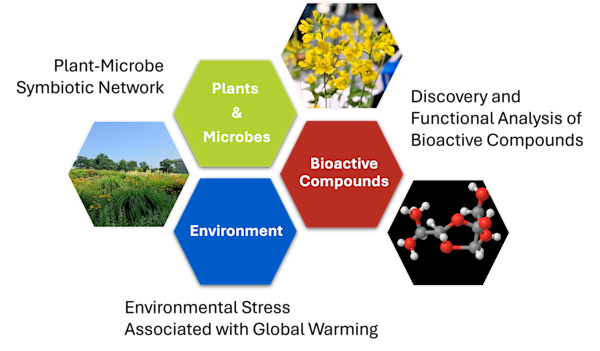Nagase Viita Co., Ltd. (Head Office: Kita-ku, Okayama City; Representative Director and President: Takahiko Mandai) and Okayama University (Location: Kita-ku, Okayama City; President: Yasutomo Nasu) are pleased to announce the launch of a new industry-academia collaborative research course titled “Laboratory of Glycobiology and Phytochemistry.” The course will commence in November 2025 at the Faculty of Agriculture, Okayama University.
Since 2020, Nagase Viita and Okayama University have engaged in a partnership for open innovation to address societal challenges and advance Sustainable Development Goals (SDGs). To develop further initiatives, Nagase Viita proposed the establishment of the “Laboratory of Glycobiology and Phytochemistry,” to foster interdisciplinary research with Okayama University.
This new course aims to create new value by integrating Nagase Viita’s expertise in glycobiology and Okayama University’s strengths in plant science, microbiology, and environmental studies – effectively bridging academia and industry.
The Laboratory of Glycobiology and Phytochemistry will explore how environmental changes associated with global warming influence interactions between plants and their symbiotic microorganisms. It will also elucidate the roles of bioactive compounds (biocompounds), such as carbohydrates, in these plant-microbe interactions. Through the research, the course aims to seek new solutions for sustainable agriculture and thus contribute to securing a stable food supply.
【Research Themes】
The course will cover the following topics:
1. Investigation on the roles of the plant holobiont† in the phyllosphere and its roles in maintaining plant health and productivity under stressed conditions
2. Exploration of the potential of external application of biocompounds in enhancing plant growth and yield
3. Development of high-throughput* screening assays to evaluate the functionality of biocompounds in promoting plant growth and enhancing plant yield
†Plant holobiont: the ecological unit formed by plants and their associated microbes
*High-throughput : rapid, time-efficient evaluation of large number of samples
The principal investigator, Dr. Ooi Lia of Nagase Viita, holds a Bachelor of Science in Genetics and a master’s degree in Disaster Studies from the National University of Malaysia, as well as a Ph.D. in Agricultural Science from Okayama University. With a multidisciplinary background, Dr. Ooi has contributed to diverse fields including plant physiology, molecular biology, biotechnology, biosensor technology, environmental monitoring, climate change adaptation, and disaster risk reduction.
Her current research focuses on understanding how bioactive compounds enhance plant growth and stress resistance. Through this course, Dr. Ooi aims to foster pioneering research that thoughtfully bridges academic perspectives with visionary industrial innovation.
【Social Significance】
This course seeks to clarify how plants and plant holobiont respond to environmental stressors such as climate change, thereby contributing to the sustainable utilization of plant resources and ensuring food security. In addition, by identifying new materials that support plant health and productivity, the course aims to enhance human well-being while promoting ecosystem and environmental conservation.
【Course Overview】
Course Name | Laboratory of Glycobiology and Phytochemistry |
|---|---|
Location | Faculty of Agriculture, Okayama University (Course of Applied Biological Chemistry) |
Main Research Areas | ・Integrated studies on interactions among plants, microorganisms, and the environment |
Team Structure | ・Principal Investigator: Dr. Ooi Lia (Specially Appointed Associate Professor) |
Key Research Scopes of the Laboratory of Glycobiology and Phytochemistry

